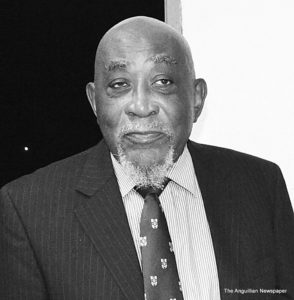
Many weeks before its March 9 sitting, when the Anguilla House of Assembly passed changes to the status of the Anguilla Community College (ACC) Act, its Board had been informed of the intended changes, and they had made their response. No objection was raised to seeking expertise from within the ranks of qualified retirees, who may offer skills and knowledge of first principles often necessary for a fledgling institution. However, the Board summarily rejected the second leg of the proposal for the appointment of key roles required for the efficient running of a tertiary education institution to be a discretionary accommodation. The functions of President, Dean of Studies, Registrar and Bursar have special meaning for such institutions. Specifically, they relate to leadership, educational rigour, record-keeping and financial responsibility within a college or university.
We have noted the financial drivers for reining in statutory bodies such as the ACC in this COVID season. The UK has mandated that financial statements be published, budgets revised downward, and strategic plans refreshed. Emoluments have been the fodder of talk shows. We have all felt the belt tighten around our collective waists. Jobs are few and far between. They popped up for a few weeks over the holidays, and it looks like they will again over Easter, but nearly everyone with a job has a friend or relative who is out of work. More than ever, money must be spent wisely both individually and for public services. And this is exactly why the state of play with respect to the ACC is of concern.
Still, nowhere across the Caribbean (indeed over the world) is public education a profit-making enterprise. Every community college in the region is supported by its government, and state-sponsored scholarships for qualifying candidates are also a common feature. Moreover, the ACC has not been profligate. In fact, it has also managed to garner grants such as the Jubilee Fund to support offerings like the current ACC Sixth Form Programme.
It is a well-researched fact that in times of recession (yes, the world, including Anguilla, is in recession) that both adults who retool, and young people who continue their education past secondary school, emerge from the recession in a strengthened position vis-à-vis the ones who did not. This is a basic economic principle called ‘Opportunity Cost’. In a recession jobs are scarce, and wages are low or limited, which reduce the opportunity cost of college. When the economy is buoyant, students are more likely to forgo strong wages to go to college. During a bust, there’s less to lose by turning one’s time and other scarce resources toward education. The result is that those who don’t retool, or pursue tertiary education, end up earning significantly lower wages for significantly longer periods.
As it did in the 2008/2009 recession, the US has recently allocated more funds to support tertiary education. Biden announced USD40 billion to support the extension of the Higher Education Emergency Relief Fund through September 2023. Of course, Anguilla does not have equivalent resources at her disposal to “vaccinate” us from the COVID recession. But to the extent possible, we need to invest in education while ensuring that our students and workforce avail themselves of the resources. Much as a vaccine has little value until it is injected, so too is the acquisition of skills and knowledge once accessible.
Last year our Government put a hold on new training for its employees. However, we welcomed the unprecedented Unemployment Assistance Programme that has been managed by the Anguilla Social Security Board. That was a necessary and sound move. Now it’s time for the next step. How do we help our population prepare itself for when things bounce back? How long do we expect to hold out against granting work permits? We need to sharpen our competitive edge, and it is not enough to expect ‘Belonging’ to cut it. We need to be able to earn it through education, skills training and certification for productivity and success.
For a country rebirthed in 1967, the advent of the Anguilla Community College has not been long. From its founding, the College sought to address the fact that students at ALHCS, and school leavers, wanted to continue their education but were unable to go abroad to do so due largely to financial constraints. Thus, the College was conceived as a conduit to offer Anguillians, and residents of Anguilla access to tertiary education options that they would otherwise be denied.
Today, the ACC is uniquely positioned to address our tertiary educational needs through academic and vocational programmes, as well as international linkages. It counted more than 250 registered students in its first semester of academic year 2020/2021, across programmes as diverse as electrical installation, creative media and information technology, special needs in education as well as food and beverage service. To ensure it delivers its full potential on behalf of our community needs, the ACC is undergoing a strategic assessment under the direction of the current president, Dr. Kenneth Alexander Williams. Inasmuch as the Government also contributes to the Open Campus of UWI (University of the West Indies) here in Anguilla, the strategic review will also require consideration of relative strengths, and the curricula offered by both the ACC and the UWI Open Campus, so as to identify potential synergies to optimise the educational options for our students and workforce going forward.
This assessment will also, hopefully, answer how is it necessary to fill posts such as PROs and Marketing Officers and Directors but less so to fill fundamental education roles at the community college? As we embark on legislative changes, we need to take care not to send mixed messages about the importance of education, training, skills and certification, the very tools that are critical to our personal and communal success. We would do well to heed these wise words attributed to Barack Obama: “With the changing economy, no one has lifetime employment. But community colleges provide lifetime employability.”







